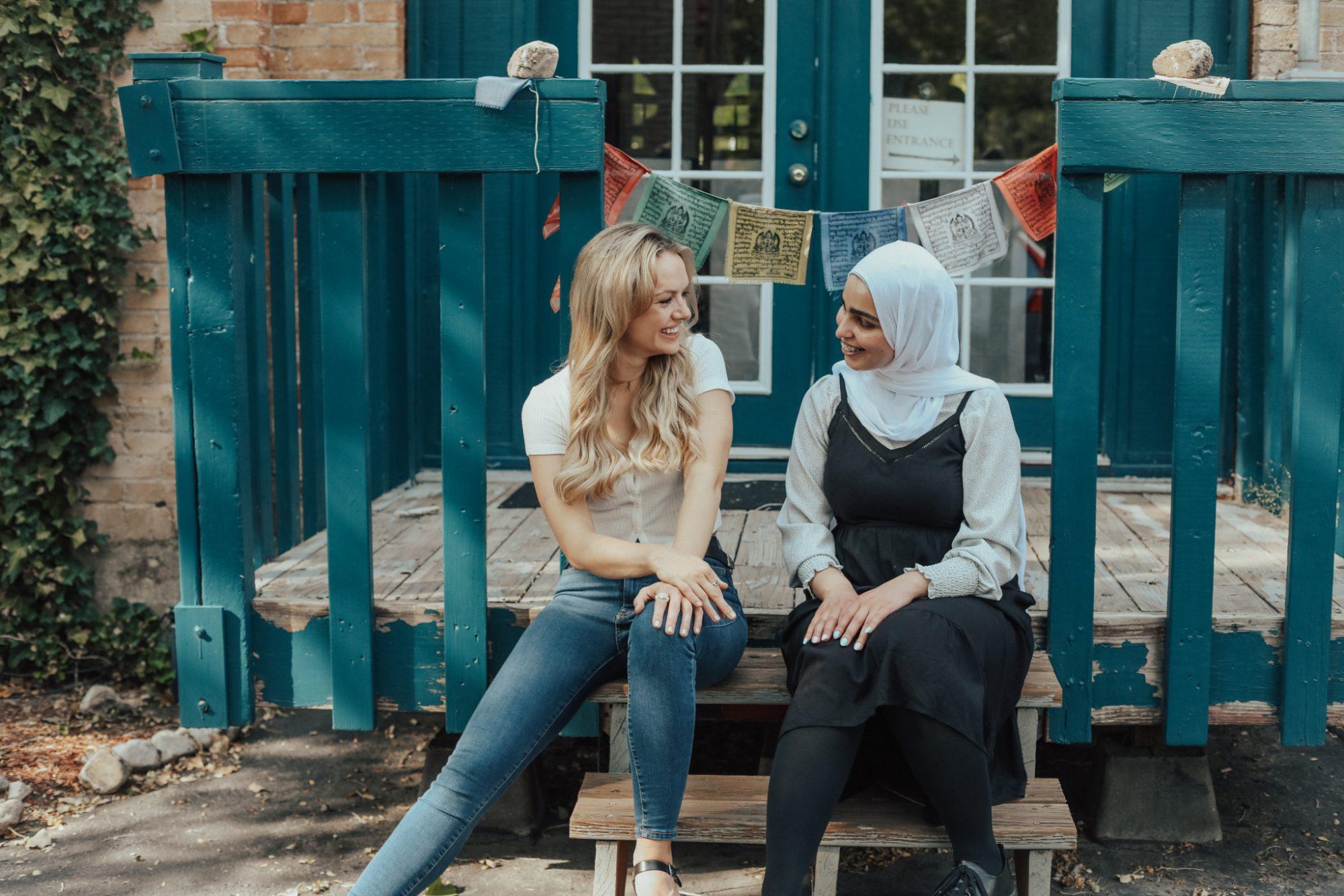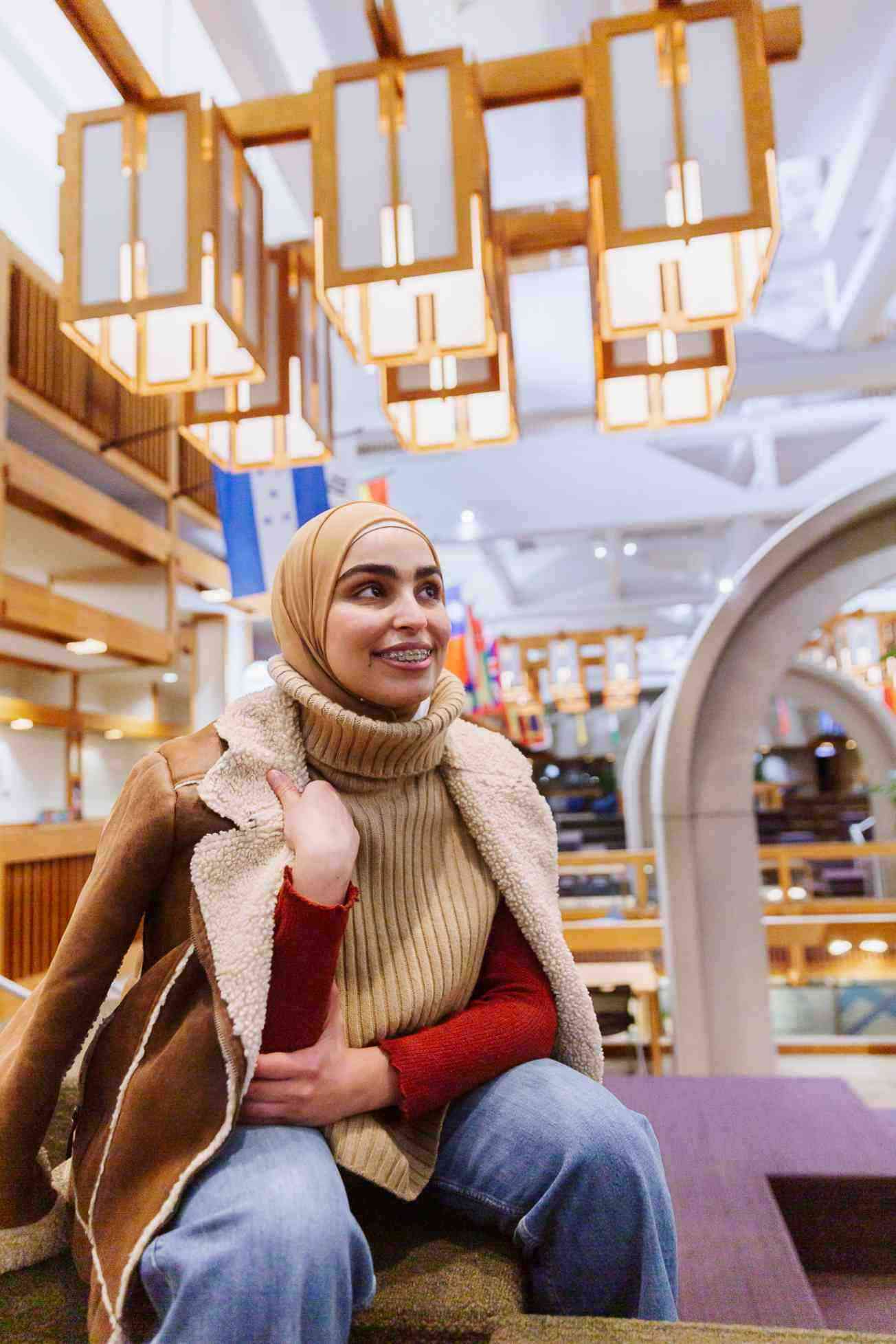Invisible Barriers and Battles: The Mental Health Impact on Refugees

Refugees often risk their lives crossing deserts, jungles, and oceans all in the search for shelter, freedom, or happiness. Yet, even once they’ve reached physical safety, mental mountains emerge that make daily life an uphill climb.
At the November 2022 conference for the Utah Chapter of the Society for Public Health Education (USOPHE), presenters Shurooq Al Jewari and Sasha Sloan discussed mental health and inclusion, focusing on immigrants and refugees.
Shurooq is a refugee from Iraq who moved to the U.S. about nine years ago. Sasha grew up in Utah and is a staunch refugee advocate through her role as Miss Utah 2021. Despite their different backgrounds, the two have a common passion for mental health within marginalized groups. In a partnership with Their Story is Our Story, Shurooq and Sasha work hard to promote inclusivity and empathy as a tool for strengthening communities’ mental health.
For those new to a community, fitting in can seem an insurmountable task. Shurooq explained that she thought life would be better when she moved to the U.S., but difficulties abounded as she tried to learn a new culture and language while facing racism and exclusion. Shurooq attended Olympus High School in Utah, where the white kids would sit on one side of the school cafeteria and the refugee and “minority” kids would sit on the other side. “I was ignored and received judgemental looks,” Shurooq explained. “These actions hurt me so much and affected my mental health to the point where I started thinking about taking off my hijab—the symbol that makes me who I am and represents what I stand for—just so I [could] blend in and feel included.” As a result of exclusion and bullying, Shurooq developed mental health issues including PTSD, depression, and anxiety. While such persecution is unacceptable, Shurooq resiliently remarked, “The challenges I faced have only made me stronger and who I am today.”

For Sasha, high school wasn’t much kinder. Despite having grown up among her peers, she found herself thrust into the “out group” fraught with bullying and exclusion. Because of this, Sasha explained, “I started having panic attacks and skipping class to avoid being laughed at in the hallway. I went from straight-A’s to flunking out of my classes. I lost my scholarship to BYU. Things got really dark . . . Because I was a person coming from privilege, a lot of my teachers and classmates didn’t know I was going through something difficult.” Although Sasha had been battling mental health challenges, she felt that she didn’t have the context or language to discuss them. This is one reason why open communication surrounding mental health can be a major catalyst in solving issues.
Although exclusion can create trauma no matter one’s background, it can come at varying degrees. Shurooq and Sasha acknowledged that marginalized groups such as refugees, people of color, and LGBTQ+ are more likely to experience negative mental health impacts from exclusion, with increased rates of depression, anxiety, and suicidal ideation.
With such harrowing effects of exclusion, one can only ask, “What is to be done?”
For Sasha and Shurooq the answer revealed itself through their friendship. They realized that what bonded them together was their shared experiences of feeling alone and excluded. Speaking openly about one’s experiences is exactly what can help someone navigate their challenges and make connections. “Stories are the best way to teach,” Sasha advised. “We can listen to one person’s story and humanize it.”
In regards to her own story, Shurooq observed, “I felt very alone and… like I was the only person going through those things… But now when I talk to my friends about this, they share their experiences with me, and they also had the same experiences. There’s just this fear that no one will be able to talk about it.” She added that we have to push past fear to develop a cross-cultural friendship because the best way to help refugees is to become their friend.
Ultimately, Sasha and Shurooq urged that the more we understand the refugee experience, the more it leads to empathy, which leads to inclusion, which leads to connection, and finally to healing.
Shurooq and Sasha’s full presentation to USOPHE can be found here.
USOPHE Presentation